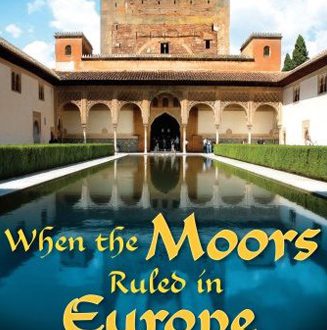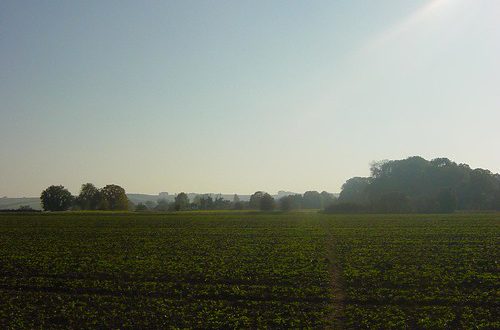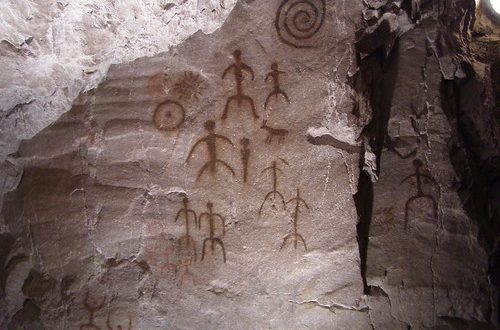 We’ve already heard Lord Norwich‘s warnings about the perilous future of his beloved Venice (watch this video). But throughout human history, what have been the planet’s greatest cities – and how did they come to be? Lord Norwich’s latest book, The Great Cities in History (see more info here) attempts to explain that over 300 pages of exquisite photography and expert opinion on 70 of man’s greatest settlements. Famed writers such as Simon Schama and Bettany Hughes lend their views on cities from Nineveh to New York, with forewords on the ancient world and beyond by Lord Norwich himself.
We’ve already heard Lord Norwich‘s warnings about the perilous future of his beloved Venice (watch this video). But throughout human history, what have been the planet’s greatest cities – and how did they come to be? Lord Norwich’s latest book, The Great Cities in History (see more info here) attempts to explain that over 300 pages of exquisite photography and expert opinion on 70 of man’s greatest settlements. Famed writers such as Simon Schama and Bettany Hughes lend their views on cities from Nineveh to New York, with forewords on the ancient world and beyond by Lord Norwich himself.
Primordial Beginnings
But what was the most vital asset to the cities which emerged from the cradle of civilization and spread into antiquity – cities like Uruk, Mohenjo-daro and Memphis? For Lord Norwich the answer is obvious: “In any city rivers were much more important than the sea, because seaports meant the sea, and the sea was a very treacherous thing.” Great Cities stretches over five chapters: The Ancient World; the First Millennium AD; the Medieval World; the Early Modern World and today, the ‘Age of the Modern City’. Just about enough history for one book.
But how did we get from the dusty cities of Sumer to the epic metropolises of our time? Again, Lord Norwich points to man’s manipulation of water: “It was really only after about 1000 AD that shipbuilding got very much better,” he says in his trademark booming brogue. “Venice was top of them all.” As we explored in the previous video, Lord Norwich is one of Britain’s best experts on the city Italians call La Serenissima, having penned A History of Venice: The Rise to Empire and Venice: A Traveller’s Companion. He has even been on the board of the Venice in Peril Fund.
It’s no surprise then that Lord Norwich sees Venice as a crucial gear in the step towards megalopolis, with shipbuilding its key asset. During the height of its power, he says, the city could churn out a ship a day. “There were 15,000 men working, every man doing his one job exactly as he had to do,” he claims. “It was the first mass-production in the world.” Venice would command the seas from the 13th to 15th centuries, a gateway between east and west.
A Smaller World
 Yet the next big breakthrough would come with exploration, again via the seas, when Christopher Columbus and Vasco da Gama discovered America and a route to India respectively at the end of the 15th century. What thus followed, many commentators have claimed, was an explosion of globalised fortunes and culture spurred on by religion, with the Iberian nations at its forefront. Lord Norwich disagrees: “The principle reason for exploring was to increase trade. Of course, Spain and Portugal like to think it was to spread the gospel. But I think gold was more important than the gospel for most of them even then.”
Yet the next big breakthrough would come with exploration, again via the seas, when Christopher Columbus and Vasco da Gama discovered America and a route to India respectively at the end of the 15th century. What thus followed, many commentators have claimed, was an explosion of globalised fortunes and culture spurred on by religion, with the Iberian nations at its forefront. Lord Norwich disagrees: “The principle reason for exploring was to increase trade. Of course, Spain and Portugal like to think it was to spread the gospel. But I think gold was more important than the gospel for most of them even then.”
Great Cities comes rushing to its denouement at the age of the modern city. Roughly half the world’s population now lives in cities, and Lord Norwich pays particular attention to the great cities of America, which have risen in the past century to become some of the world’s most important locations. New York and Los Angeles may have been known by foreigners during their birth, he says, but others like Chicago, which grew up on the great 19th century railroads, would not have. Chicago is the ‘Engine of America’, as James Cuno notes in Great Cities: its population boomed from 30,000 to over 300,000 between 1850 and 1870.
What for the Future?
The book ends with an epithet to Shanghai, which John Gittings claims in its post-Mao heyday, has regained its place as China’s ‘brash, do-it-all, ultra-modern super-city.’ It’s clear Great Cities paints a pragmatic view of its pantheon of places. And Lord Norwich’s opinion on the fleeting, organic lives of cities is as clear and lyrical as ever: “One of the most extraordinary phenomena in all history is the way suddenly, from one moment to the next, one city is touched by the angel’s wing and then, just as suddenly, it’s gone.” Suddenly the giant cities we call home seem a little less indestructable.
HD Video: John Julius Norwich on the Great Cities in History
(Transcription of this video.)
Have Your Say
Do you agree with Lord Norwich’s views on the driving forces behind the world’s greatest cities? Have you got an opinion on his latest book, or do you feel your own home town deserves a mention? Don’t hesitate to get in touch either , our contact page or by emailing me direct. Exploring the planet’s ancient past has never been easier with Heritage Key: Unlocking the Wonders.
More Lord Norwich to come
Lord Norwich is one of Britain’s great storytellers, and these interviews and articles on Heritage Key are just a sample of the new book “The Great Cities of the World“. Read fantastic accounts from a several well-travelled writers on some of the most intruiging and stunning cities since the dawn of civilisation. Also watch out for another video coming soon to Heritage Key, on some of history’s lesser-known tales – including the fall of empires and female Popes!





